When the City Council accepted the study this week on Northfield’s drinking water along with its various recommendations, it decided to build a new drinking water treatment plant at an estimated cost of $33.5 million.
build a new drinking water treatment plant at an estimated cost of $33.5 million.
A new plant is required, according to the study, because the levels of Manganese in the city water supply exceed the secondary FDA standards. The levels, according to the Minnesota Department of Health, can be harmful to infants under the age of twelve months and can cause learning disabilities like Attention Deficit Disorder.
Justin Wagner, the city’s Utilities Manager who presented the study results and recommendations, said without funding from outside sources, the cost to the average Northfield resident would nearly triple their drinking water bill each month.
Wagner said over the next four years, Northfielders could expect to see the cost of drinking water increase by 28.5% each year. If the average bill for drinking water is just over $14 a month, by 2026 the amount on average would be just over $40 a month.
To that end, the city will pursue several avenues for grants and other funding to offset much of the new plant’s cost. One avenue will be through the state’s Drinking Water Revolving Fund, which can offer grants for a project such as this in some cases. The city will also pursue direct appropriations at the state and federal level. While the state legislature is currently putting a bonding bill together, the deadline to ask for appropriations in that bill is long past. Any money from the state for this project would have to be included in the 2024 bonding process. Wagner said they are making appeals to the federal government through Senators Amy Klobuchar and Tina Smith.
While the price tag of the new plant is high, members of the Council labeled the issue a public health concern and an environmental justice issue. Mayor Rhonda Pownell said this is about equity, and the need to fix the problem outweighs the cost.
“If you’re a person with ADHD and now has to take medication for the rest of your life, that is a huge cost. And one that can be potentially preventable. One of the ways we can do that is insuring that people have healthy quality drinking water.”
Wagner said, overall, the city will seek $25 million from outside sources to help pay for the new facility. They will know in September if there is a grant coming from the state drinking water fund, and there is no timetable on receiving help from the federal government. Regardless of what funding may come in, the city intends to move forward on the project.
Hospital Auxiliary will begin taking donations for book fair
After a two-year Covid induced absence, the Northfield Hospital Auxiliary Book Fair will return to the Northfield Ice Arena on April 26th. 
Book Fair Chair Rita Olson said because of the break, the Auxiliary expects to have many more books available than in past years. Normally, she said, they would have about 70,000 books. This year she expects that number to be closer to 100,000.
The donation period will begin on Tuesday. Those wishing to make a donation can bring their items to the arena between 9am and 5pm. Olson said they will accept books, CDs, DVDs, vinyl records, and puzzles through Friday, April 21st.
Moldy books, magazines, reference books, cassettes or VHS tapes will not be accepted.
Despite the vast number of items on sale, Olson said patrons can expect the same level of organization that they have experienced in years past.
“Our book fair is unique in that we have excellent sorting and shelving, so we make it easy for you. If you want a children’s book at a particular age group, we have signage for that, we also have fiction, cookbooks, travel, and it is all very well organized.”
Funds raised from the fair will go to completing the education room in the Emergency Medical Services headquarters, to the HealthFinders Medication fund, and to fund scholarships for healthcare careers.
Olson said they will follow CDC guidelines and require medical masks for all customers. Staff will have extra masks and hand sanitizer available.
The fair will run from 5 to 9pm, April 26th to April 30th.
Jeff Johnson’s full conversation with Book Fair chair Rita Olson can be heard here
Cait Kelley contributed to this story
EDA accepting riverfront grant applications
The Northfield Economic Development Authority is now accepting applications from riverfront properties for a Riverfront Enhancement Grant.
Grant.
According to a statement released by the EDA, the program aims to strengthen, revitalize and sustain the riverfront corridor by encouraging and assisting property owners to make improvements to buildings and property within the district. By providing a financial incentive, the program will stimulate private investment and support stabilized and increased property values.
Through the program, the EDA will match private investment one-to-one up to $10,000. A similar program has run in recent years for buildings that face Division Street.
The program area comprises the entire length of the Cannon River within the Northfield city limits. The program is open to all buildings and properties directly abutting the Cannon River or public property along the riverfront. Building owners and commercial tenants with property owner’s approval can apply for a grant. For-profit and not-for-profit organizations are eligible to apply, under the requirement that the grant is used for a commercial building.
The grants can pay for a variety of exterior building improvements such as repairing masonry, painting, re-siding, landscaping, creating or enhancing outdoor gathering areas, and enhancing accessibility to the riverfront.
The deadline to apply for a Riverfront Enhancement Grant is May 15. For more information visit the City of Northfield website.
Rich Larson is the KYMN News Director. Contact him at rich@kymnradio.net.
[recent_post_carousel slides_to_show=”1″ limit=”5″ slides_to_scroll=”1″ category=”10″ media_size=”medium” dots=”false” show_read_more=”false”]

